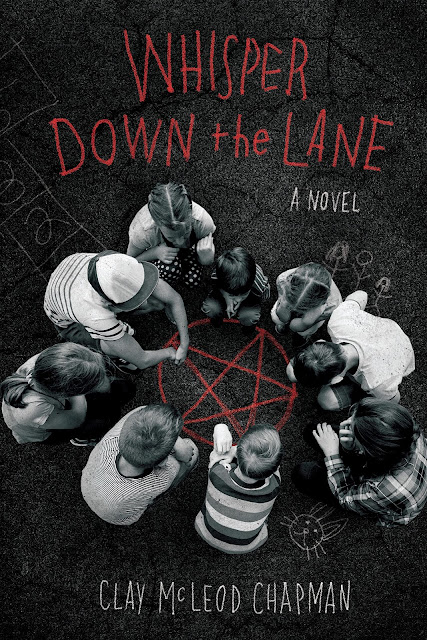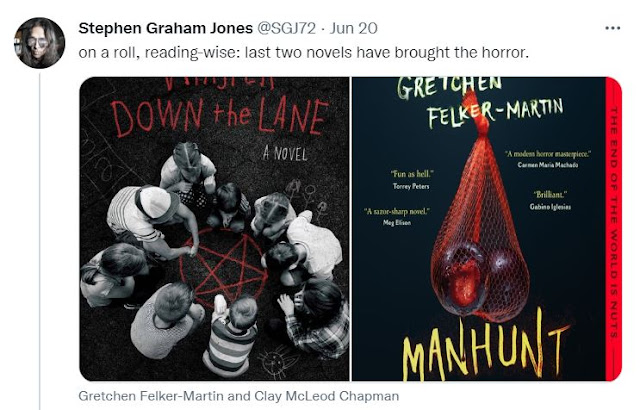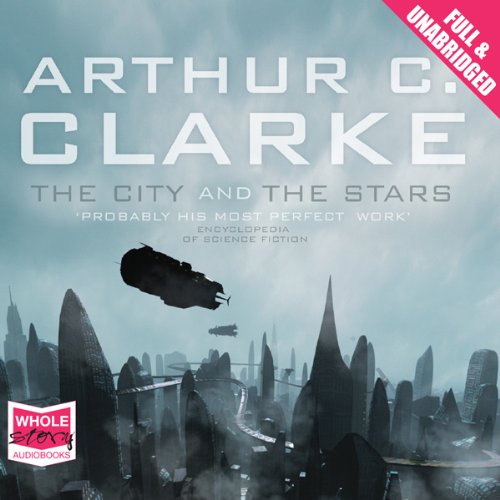It's been a while since I posted, so here's a review. This one was very interesting:
Perfect for gifting to lovers of philosophy or mining intelligent ice-breaker topics for your next party, The Pig That Wants to Be Eaten offers one hundred philosophical puzzles that stimulate thought on a host of moral, social, and personal dilemmas. Taking examples from sources as diverse as Plato and Steven Spielberg, author Julian Baggini presents abstract philosophical issues in concrete terms, suggesting possible solutions while encouraging readers to draw their own conclusions:
Lively, clever, and thought-provoking, The Pig That Wants to Be Eaten is a portable feast for the mind that is sure to satisfy any intellectual appetite.
It's packed with very short chapters, each starting with a
quote that poses a thought experiment. Something to cogitate over whilst stirring
your morning coffee, sitting on the loo or drifting off to sleep. The subject
matter is extremely broad and rather deep, covering everything from the existence
of God, abortion, and personal identity through to freedom of speech and
conspiracy theories. Some of my favourites were the discussions on faith. I
feel that one of the more horrific aspects of monotheistic religions is the way
they take away an individual's belief in themself as a moral entity from birth.
This idea that we are not born with a moral compass, and that this is only
bestowed upon us when we listen to this preacher or that preacher, read this
passage or that passage, go to confession, take communion, cover your face...
whatever. Morality isn't the dominion of religion, it goes far beyond that.
People may be drawn to religion because they have been brought up that way or
because a particular religion aligns with moral values they already hold, but
generally speaking, religion itself doesn't appear to define an individual's
moral values in and of itself. That's my personal assessment. People are as
likely to be 'good' people or 'bad' people regardless of whether they follow,
or do not follow, a given doctrine. This concept of sin, especially original
sin, and terrifying children from a young age with the idea of eternal
damnation, makes my skin crawl. The world is a fascinating, beautiful, comedic,
tragic and oft-times unfathomable place with complexity and nuance at every
turn. We were born to navigate that. So, the question of whether [insert name
of deity here] makes a difference to the course we steer is an interesting one
to me. There's a well-reasoned argument against the authority of religion over
morality:
When I was at school, we used to sing a hymn in which God was equated with virtually every positive attribute. We sang that God is love, God is good, God is truth, and God is beauty. No wonder the chorus ended ‘praise him!’.
The idea that God is good, however, is ambiguous. It could mean that God is good in the same way that cake is good, or Jo is good. In these cases, ‘is’ functions to attribute a quality or property to something, such as goodness or blueness. Equally, however, ‘God is good’ could be a sentence like ‘Water is H2O’ or ‘Plato is the author of The Republic’. Here, ‘is’ indicates an identity between the two terms: the one thing is identical to the other.
In the hymn, the ‘is’ seemed to be one of identity, not attribution. God is not loving but love; not beautiful but beauty. God doesn’t just have these fine qualities, he is them. Hence ‘God is good’ implies that the notions of God and goodness are inextricably linked, that the essence of the good is God.
If this is so, then it is no wonder that many believe that there can be no morality without God. If goodness and Godness cannot be separated, secular morality is a contradiction in terms.
However, our imaginary conversation seems to demonstrate very clearly and simply that this cannot be so. If God is good, it is because God is and chooses to do what is already good. God doesn’t make something good by choosing it; he chooses it because it is good.
Some might protest that this argument works only because it separates what cannot be separated. If God really is good, then it doesn’t make sense to pose a dilemma in which the good and God are distinguished. But since it seems to make perfect sense to ask whether the good is good because God commands it, or God commands it because it is good, this objection simply begs the question.
Even if God and the good really were one, it would still be reasonable to ask what makes this identity true. The answer would surely be that we know what good is and it is this which would enable us to say truly that God is good. If God advocated pointless torture, we would know that he was not good. This shows that we can understand the nature of goodness independently of God. And that shows that a godless morality is not an oxymoron.
*
And what are we finally left with? A God who leaves no trace, makes no sound and interferes not one jot in the progress of the universe. A few miracles are claimed here and there, but even most religious believers don’t seriously believe in them. Other than that, God is absent. We do not see as much as his fingernail in nature, let alone his hand. What then is the difference between this God and no god at all? Is it not as foolish to maintain that he exists as it is to insist that a gardener tends the clearing Livingston and Stanley discovered? If God is to be more than a word or a hope, surely we need some sign that he is active in the world?...
As a response this can seem unsatisfactory. For what it adds up to is the claim that, if ever we are presented with rational reasons to doubt the existence of God, we simply have to accept that our intellects are finite and that what might seem irrational or contradictory does make sense from the divine point of view. But that just means dismissing the role of rationality in religious belief. And you can’t have it both ways. It’s no use defending your belief using reason on one occasion, if you don’t accept that a reasoned argument against belief has any force.
*
Morality is a higher authority than the law. That is why we approve of civil disobedience when the state’s laws are manifestly unjust and there are no legal ways to oppose them.
As Rosa Luxemburg would put it, 'freedom is always the freedom of dissenters.'
I also learned the term 'supererogatory behaviour,' which is apparently, 'when someone does something good which goes beyond what is demanded of them by morality.
I think my favourite, however, was the argument against multiculturalism. As someone who lives outside of my own culture, but sees my culture seeping into the daily lives of those around me more and more, I'm in a constant state of concern. I feel like the world is getting smaller, and that global internet culture is wiping out local, cultural culture, as it were. I've seen certain mannerisms and behaviours disappear over my fifteen years in Rwanda, from men holding hands in public to people hissing to get the attention of a waiter or moto driver. Things that have been dropped since Rwandans discovered they have a different meaning for foreign tourists. I'm always in two states. I miss those things, because they seemed so Rwandan when I first arrived, and gave me a sense of being in a different world at times, but I also like the idea of a united, global world where everyone has the same rights, freedoms, and access to information and technology (preferably a socialist world with free housing and universal basic income, but, one step at a time...) so, even as I morn the loss of certain things, I like the sense of people around the world becoming closer and understanding each other more easily. This particular chapter definitely made me laugh, because I see the issue, but I still long for a little bit of raw adventure in uncharted territories and exotic locations. A longing to explore the 'other'. It's a tough one to grapple with...
There is a problem at the heart of liberal multiculturalism. It advocates respect for other cultures, but what it values above all is the ability to transcend one culture and value many. This places a major constraint on the extent of its respect. The ideal person is the multiculturalist who can visit a mosque, read Hindu scriptures and practise Buddhist meditation. Those who remain within one tradition do not embody these ideals, and so, despite the talk of ‘respect’, they can be seen only as inferior to the open-minded multiculturalist.
There is something of the zoo mentality in this. The multiculturalist wants to go around admiring different ways of living, but can do this only if various forms of life are kept more or less intact. Different subcultures in society are thus like cages, and if too many people move in or out of them, they become less interesting for the multiculturalist to point and smile at. If everyone were as culturally promiscuous as they were, there would be less genuine diversity to revel in. And so the multiculturalists must remain an elite, parasitic on internally homogenous monocultures.
It may be argued that it is possible to be both a multiculturalist and committed to one particular culture. The paradigm here is of the devout Muslim or Christian who nonetheless has a profound respect for other religions and belief systems and is always prepared to learn from them. However, tolerance and respect for other cultures are not the same as valuing all cultures more or less equally. For the multiculturalist, the best point of view is the one which sees merit in all. But one cannot be a committed Christian, Muslim, Jew or even atheist and sincerely believe this. There may be tolerance, or even respect, for other cultures, but if a Christian really believed that Islam is as valuable as Christianity, why would they be a Christian?
This is the multiculturalist’s dilemma. You can have a society of many cultures which respect each other. Call that multiculturalism if you want. But if you want to champion a multiculturalism which values diversity itself and sees all cultures as of equal merit, then you either have to accept that those who live within just one culture have an inferior form of life – which seems to go against the idea of respect for all cultures – or you have to argue for erosion of divisions between distinct cultures, so that people value more and more in the cultures of others – which will lead to a decrease in the kind of diversity you claim to value.
In our concrete example, for Saskia to continue to enjoy a diversity of cultures, she must hope that others do not embrace multiculturalism as fully as she has.
So, an enjoyable read. I think the only problem with books like these, where it's one information burst after another, is that it's better just to read one chapter a day, rather than listening to it all at once, otherwise the queries all start to bleed into one and you zone out a little. But this was good fun.
























